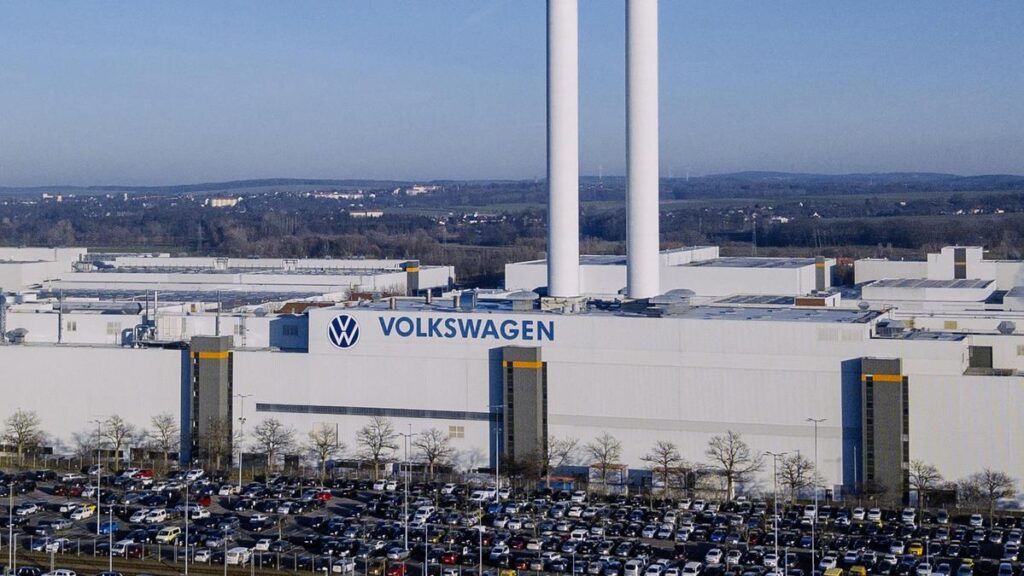
Volkswagen is reducing production of its electric vehicles in Europe, responding to slower-than-expected demand. Representatives from the company confirmed to sources including Automotive News and Bloomberg that production pauses will occur at various factories, starting with the Zwickau facility on October 6, 2023. This factory, which produces models such as the Audi Q4 e-tron, Volkswagen ID.4, and ID.5, will halt operations for a week due to decreased demand, particularly in the United States, where tariffs are impacting sales.
In addition to Zwickau, the Dresden ‘Transparent Factory’ will also pause production during the first week of the October autumn holidays. A spokesperson indicated that the company is “adjusting its production schedule to the current market situation.” Originally established to showcase the Phaeton luxury sedan, the Transparent Factory now focuses on producing the Volkswagen ID.3.
The Emden factory, responsible for the ID.4 SUV and ID.7 sedan, has already reduced worker hours and plans to shut down for several days. Meanwhile, Volkswagen Commercial’s facility in Hanover will also suspend production during the holidays, affecting the T7 Multivan and ID. Buzz.
Despite these production cuts, Volkswagen remains the leading brand in the electric vehicle sector across Europe. According to Dataforce, Volkswagen sold 16,105 electric vehicles in August, marking a 45 percent increase compared to the previous year. Tesla followed with 14,345 sales, reflecting a decrease of 23 percent, while BMW secured third place with 12,546 units sold, a 7 percent increase.
The top ten electric vehicle brands also included Skoda, Audi, Hyundai, Mercedes-Benz, Renault, Ford, and BYD, with most brands experiencing significant sales growth of between 54 and 123 percent year-on-year. Despite Volkswagen’s strong performance, the Tesla Model Y remains the best-selling electric vehicle in Europe this year, with 84,314 units sold, despite a notable decline of 34 percent.
While the overall electric vehicle market in Europe grew by 26 percent in August compared to the same period in 2024, Volkswagen’s dedicated electric vehicle factories are operating well below capacity. The slower demand for electric vehicles has prompted many manufacturers to reassess their production strategies. Some companies are now reintroducing petrol and plug-in hybrid models into their lineups. For instance, Porsche has decided to incorporate petrol engines into the new Boxster, and Bentley has approved a new non-electric generation of the Flying Spur and Continental. Volvo has also greenlit a third-generation XC90.
This shift in strategy highlights the challenges faced by the electric vehicle sector as market dynamics evolve, prompting manufacturers to adapt to consumer preferences and economic factors. As Volkswagen navigates these complexities, the company’s future production plans remain uncertain, but its position as a leader in the European electric vehicle market is firmly established.





